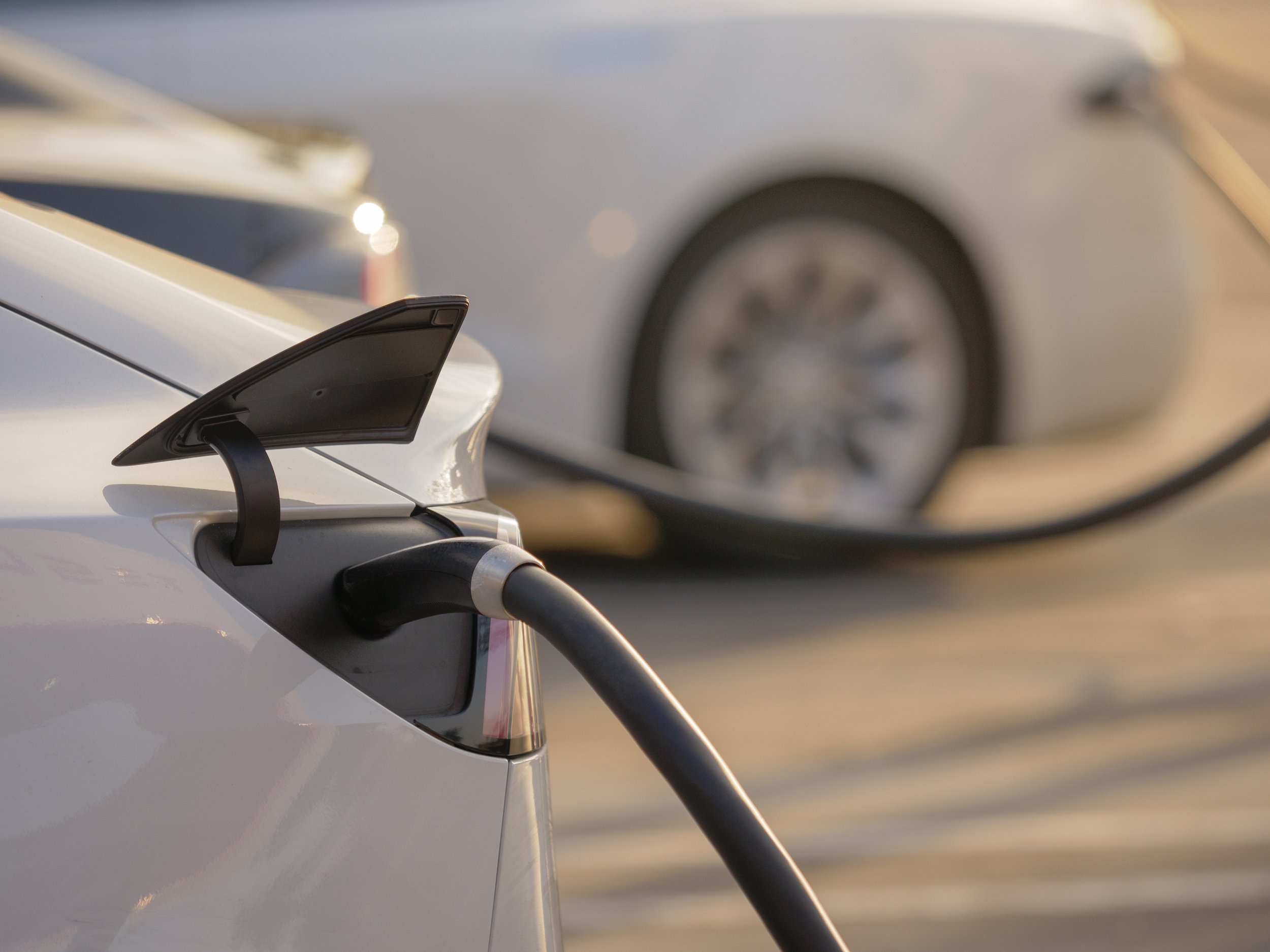When the time comes to choose your next car, one question often sparks debate: gas-powered or electric vehicles (EVs)? While one offers a century of tradition and the other ensures a cleaner future, it's no wonder that drivers feel torn.
Whether you’re all about speed, savings, or sustainability, it’s time to settle the score in the great car debate.
Range and Refueling
Most often, the goal when you get behind the wheel is to get from point A to point B. When picking out your next ride, range and refueling options are extremely crucial. Gas cars are known for their range advantage as it is typically greater than EVs.
Meanwhile, those who drive electric have probably experienced the feeling of range anxiety; the fear or concern about the possibility of running out of battery power before reaching a charging point. This anxiety is often due to the limited driving range of many EVs in comparison to gasoline-powered cars.
Battery capacity and charging infrastructure are two key factors that can influence this big decision. Gas stations are widely available and refueling is much quicker in comparison to an EV, even when using fast chargers. The convenience of gas stations allows drivers to cover long distances with minimal downtime, making road trips and commutes easy.
In contrast, EVs range depends heavily on the vehicle battery capacity as well as the availability of charging stations. Even at their quickest, charging an EV typically takes more time than refueling a gas car, there are multiple charging options available, although, if you're on a tight schedule, pumping gas is usually the best option.
Key Points:
Driving range and refueling options are crucial; gas cars often have a range advantage over EVs.
EVs can cause range anxiety due to limited battery capacity and fewer charging stations.
Gas stations are widely available, and refueling is faster than charging, even with fast EV chargers.
Longevity and Upkeep
When it comes to the maintenance and upkeep of your car, both electric and gas vehicles offer different advantages. An EV for example, requires fewer moving parts and no oil changes, although, the longevity and preservation of the EV battery are critical considerations.
Battery life depends on factors like climate, driving habits, charging routines, battery chemistry, and the vehicle's thermal management system, says the U.S. Department of Energy. Battery replacement costs can be high if they fail after the warranty expires. To stay informed, buyers should ask their dealer about battery life, warranties, and replacement costs for their specific model, The US Department of Energy said.
EVs do generally require less maintenance, however, their batteries require special attention. On the other hand, gas-powered cars demand regular engine care but lack the high-cost risks associated with EV batteries.
A study conducted by the University of Michigan and published in the Journal of Industrial Ecology found that gasoline vehicles are often less expensive to purchase, but EVs are less expensive over time due to lower maintenance, repair, and fuel costs.
With proper care, a gas-powered car can last over 200,000 miles, which can translate to 10-15 years of service. Routine maintenance is the key to upkeep, oil changes, brake servicing, and tire rotations to keep the vehicle's components running smoothly.
Parts like spark plugs, belts, and filters need to be replaced periodically, but this is all generally affordable and straightforward. While fuel costs can add up over time, their established infrastructure makes gas cars reliable workhorses for long-term ownership, according to the University of Michigan.
Key Points:
EVs have fewer moving parts, require no oil changes, and need less maintenance overall, but battery longevity and replacement costs are key concerns.
EV battery life depends on factors like climate, driving habits, and charging routines; replacements can be costly but are expected to become cheaper with advancing technology.
Gas cars require regular maintenance (oil changes, brake servicing, etc.) and can last over 200,000 miles with proper care. While fuel costs add up, they offer reliability and lower upfront costs compared to EVs.
Environmental Considerations
When comparing the environmental impact of gas vs electric cars, the contrasts are significant. As gas cars rely on fossil fuels and further produce carbon dioxide emissions that contribute to climate change, EVs generate zero tailpipe emissions. Although, an EVs impact is not entirely neutral, manufacturing the batteries involves resource-intensive mining and emissions.
As advancements in battery technology and recycling improve, and as the energy grid becomes greener, the environmental benefits of EVs are expected to only progress. Understanding these nuances highlights the importance of considering the entire lifecycle of a vehicle when evaluating its environmental footprint.
There are so many factors when considering the environmental impact of both EVs and Gas cars, including the energy source, battery recycling, and the impact on air quality. Gasoline vehicles rely heavily on the extraction, refining, and combustion of fossil fuels, each gallon of gas burned emits roughly 19 pounds of carbon dioxide, according to the U.S Energy Information Administration.
In regions where coal or other fossil fuels dominate the energy mix, the environmental benefits of EVs are reduced. However, over their entire lifespan, EVs are typically more environmentally friendly, according to the US EPA.
Key Points:
EVs have zero tailpipe emissions, while gas cars emit ~19 lbs of CO₂ per gallon burned.
Gas cars rely on fossil fuels; EV impact depends on energy sources but improves with greener grids.
EV battery production is resource-intensive, but advances in technology and recycling reduce emissions.
Convenience and Comfort
When it comes to convenience and comfort, gas-powered cars and EVs each have distinct advantages and drawbacks in terms of convenience and comfort. Understanding these differences can help drivers choose the option that best suits their lifestyle.
Gasoline engines produce noticeable noise and vibrations, especially in older models. EVs, powered by quiet electric motors, offer a smoother, more tranquil ride. Reduced cabin noise enhances comfort, making EVs particularly appealing for city driving and long commutes.
although, for enthusiasts, gas-powered cars provide a traditional feel, including the tactile feedback of manual transmissions. EVs, by contrast, deliver instant torque for quick acceleration and seamless power delivery, creating a responsive and enjoyable driving experience, according to MDPI.
Key Points:
EVs are quieter and smoother, enhancing comfort for city and long-distance drives.
Gas cars provide tactile feedback and a traditional feel, appealing to driving enthusiasts.
EVs offer instant torque for quick acceleration and seamless power delivery.





